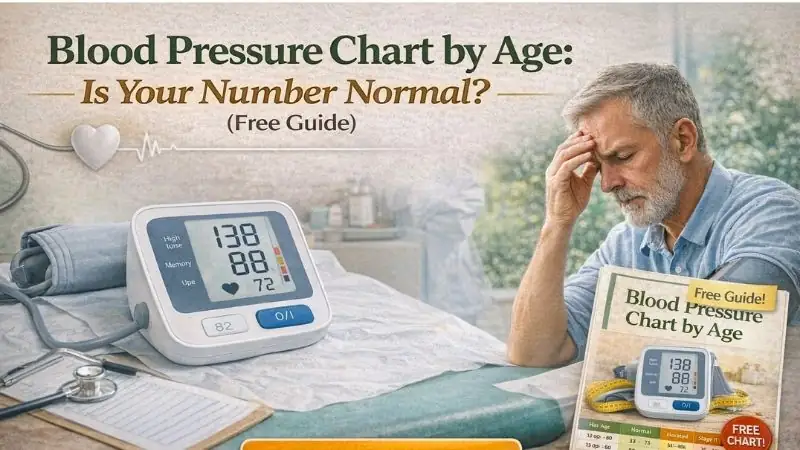How to Calculate Body Mass Index (BMI): Are you obese?
The first level of assessment of your health is knowing your body mass index. So, in this article, we are attaching a Body Mass Index (BMI), Calculator. We also talk about who should and should not use the calculator.
Using the BMI calculator, you can determine how healthy you are. Is your weight average or obese? You may be underweight or overweight. Both are not good for your health.
Underweight people may have the risk of developing health conditions such as:
- Malnutrition
- vitamin deficiencies
- Anemia
- decreased immune functions
- irregular menstrual cycles
- growth issues in children
Overweight (obese) people may have high risks of developing health conditions such as:
- type 2 diabetes
- heart disease
- Strokes
- high blood pressure
- certain types of cancer
- fatty liver
- kidney disease
- Osteoarthritis
- sleep apnea
- pregnancy issues
- joint problems
So, always have an awareness of a healthy lifestyle. The awareness begins with knowing your body mass index. Assess where you stand on your health condition and take timely action.
You can use the Basal Metabolic Rate (BMR) calculator for correcting your weight. BMR helps to decide how many calories need to be reduced or added every day.
What is Body Mass Index?
Body Mass Index is a method of measuring body mass fat. The attributes of weight and height of one’s body are used to calculate BMI. It gives a high level of reading of body composition. (1,2)
How body mass Index is calculated (the formula of BMI)?
The formula for BMI is very simple. The weight in kilograms is divided by the height in square meters. In the case of centimeters, divide further by 100 to convert them to meters.
The BMI formula is Weight (kg) / [height (m)]2
How to Read Your BMI from the Body Mass Index Chart?
You can guess which category you belong to based on BMI readings (3). The following are categories published in the National Heart, Lung, and Blood Institute.
| BMI Readings (Range) | Body Weight |
|---|---|
| less than 19 | underweight |
| 19 to 24 | normal |
| 25 to 29 | overweight |
| 30 to 39 | obese |
| above 40 | extreme obesity |
Body Mass Index Chart for Men and Women
For the simplicity of reading purposes, we have reconstructed the BMI Chart. The chart was published by theNational Institute of Health. This table advocates that your correct weight should be based on your height.

Who can use the Body Mass Index Calculator?
Yes, you and I can use the BMI calculator. What we mean is that a BMI calculator is meant only for normal people. Not for the people who are engaged in changing their physical structure for a purpose. The BMI calculator does not suit people like:
- athletes
- bodybuilders
- muscle builders
- growing young children
- pregnant women
- women in lactation and
- elderly people
These groups of people’s weights cannot be judged easily. Because it is hard to say they have more muscle or fat in their bodies.
Athletes and bodybuilders may show a higher reading of BMI. The reading is high because they may have more muscle weight than fat weight. This does not mean they are obese or unhealthy.
Similarly, growing young children’s weight keeps varying. Elderly people may lose some weight due to aging. Because of these reasons, their BMI reading may show lower. It does not necessarily mean they are unhealthy.
Women’s composition changes during pregnancy and lactation. It affects their weight. In these conditions, BMI readings are not appropriate. It cannot determine whether they are overweight or not.
Body Mass Index Calculator
Here is the easiest way to calculate your BMI. Enter your weight and height in the calculator and press the calculate button to know your BMI.
BMI Calculator
Enter your height:
Enter your weight:
How Accurate Is BMI Calculator?
Researchers do argue about how accurate the BMI calculator is. They doubt the accuracy of BMI readings for overweight, normal weight, or underweight. They argue this is not the correct way to measure body weight fat.
The main reason is that BMI cannot differentiate between muscle and fat. Some people are muscular and have less fat in their bodies. Some have more fat and fewer muscles. This tends to mislead that he or she is overweight (4).
Additionally, BMI cannot know where the fat is deposited in your body. In normal circumstances, belly fat is more harmful than fat just under the skin.
Thin people may also have belly fat, but BMI may show normal readings. It does not mean they are healthy.
Doctors may use the BMI reading only to have first-level information about the patients. Helping them to decide if their patients are at a high, a low, or at no risk. The risks concerning the body weight of their patients.
Doctors may also use other methods in combination with BMI to determine the health of a patient, such as:
- Waist to Hip Ratio (WHR)
- Waist-to-Height Ratio
- Body Fat Percentage
Using these methods helps to come to a better conclusion. You have to gain or lose weight, or you are at the correct weight.
There are other expensive methods also to find fat in our bodies. Such methods are CT and MRI scans. Doctors seldom use these methods. Unless it is deemed important, depending on the patient’s health condition.
Takeaway
It is good to know what your BMI is. It is a simple calculator. All you need to know is your weight and height. BMI readings help you to determine whether you are underweight, normal weight, or overweight.
By knowing your BMI, you can take timely corrective actions for the right weight for your body. You can assess if BMI readings are high because of fat or muscles. If your muscles are sluggish and you have a bigger belly, you are mostly obese. If your muscles are stronger and not sluggish, and your BMI reading is high, you shouldn’t be worrying too much.
Trust in your purchase:
Every product featured on our site has been carefully researched and selected based on quality, customer ratings, and positive reviews to ensure you receive excellent value for your money.
Please note:
This post contains affiliate links. If you make a purchase through these links, we may earn a small commission at no additional cost to you. This helps support our site and allows us to continue bringing you valuable content. Thank you!
Thank you for your precious time spent with NobleHomeRemedies.
You may also like:
Oxytocin Benefits and Side Effects
Oxytocin Benefits and Side Effects You Ever Want to Know Everybody catches the love bug…
Lunch Recipes for High Blood Pressure
7/20 Low Sodium Lunch Recipes for High Blood Pressure (Part 2: Salads, Wraps & Soups)…
Blood Pressure Chart by Age
Blood Pressure Chart by Age: Is Your Number Normal? (Free Guide) Medical Disclaimer: The content…
Does Nyquil Make You Sleepy
Does Nyquil Make You Sleepy? : Find the Surprising Answer! Nyquil is a popular over-the-counter…
High Protein Foods According to Dietitian
Top 10 High Protein Foods According to a Dietitian Every adult should consume protein in…
How Long Does Nyquil Stay In Your System?
How Long Does Nyquil Stay In Your System? Find the Answer This article covers the…






